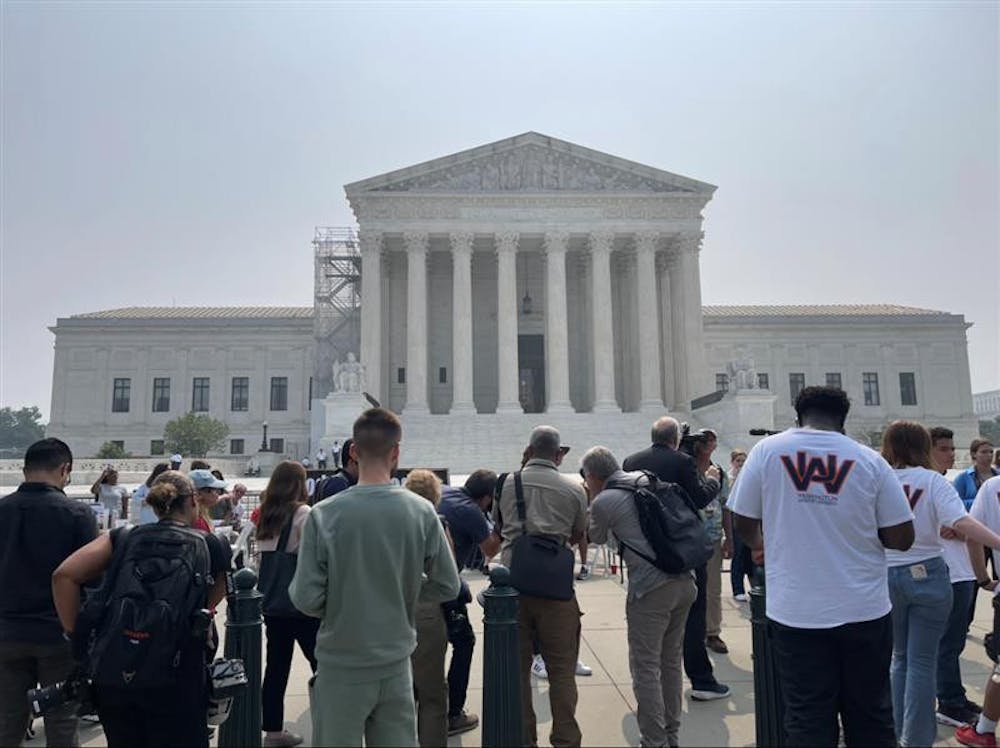Updated as of 4:43 p.m. on June 29 to include reactions from Elon University students.
The Supreme Court ruled to end affirmative action, stating it violates the equal protection clause of the Constitution. Universities and colleges will no longer be allowed to consider race in the college admissions process.
Before this ruling, university admissions officers were allowed to consider a student’s race as a factor in conjunction with test scores, grades, extracurricular activities and other considerations. The Supreme Court has been debating affirmative action since 1978, when a fractured court ruled that while universities could not make quotas, they could consider race in the admissions process. The court’s decision today goes against the precedents previously set.
In a statement provided to Elon News Network from university spokesperson Owen Covington on behalf of Greg Zaiser, vice president for enrollment at Elon University, he said Elon admissions will review what the ruling means for the university, but will remain focused on student’s unique experiences in the application process.
“Elon University's inclusive, holistic admissions process is guided by our institutional mission to foster an intellectually challenging environment that prepares students for success in an interconnected world,” Zaiser wrote. “As the university reviews the Supreme Court's decision concerning race-conscious admissions practices in higher education, we will continue to maintain an admissions process that considers applicant’s unique experiences, achievements and potential contributions to our community.”
Covington said this is the only public statement the university will be making at this point.
Rising Elon senior William Wood said hearing the news on the morning of its announcement June 29 was difficult. Wood said as a student and former vice president of communications for Elon’s Student Government Association, he knows many students who are dissatisfied with Elon’s diversity. As of 2022, 79% of Elon undergraduates are white.
“I think the university should be commenting on the issue,” Wood said. “I am concerned about how this will further impact the diversity initiatives we have on campus and I'd love that administration to comment on how they're responding to this decision.”
Wood said he hopes any students who have concerns about the ruling attend SGA meetings to share their opinions and reach out to student leaders.
Incoming freshman Ryan James said while diversity and representation are important, he agrees with the Supreme Court’s present day ruling. James said while affirmative action is one way to help some students of color, it can hinder Asian students.
According to a research report published on June 8 by the Pew Research Center, 53% of Asian Americans said affirmative action is a good thing. Yet, 76% of Asian Americans also said race shouldn’t factor into admissions.
James said he applied to nine different colleges and noticed college admissions officers and applications asked many questions regarding race and religion. As a white, Jewish student, James said he feels his race was a negative factor in some instances.
James said he did not get into Washington University in St. Louis and University of Florida, as well as was waitlisted at Babson College in Massachusetts. While James said without race being a consideration he’s not sure if the results would have been any different, he does believe that race played a factor in his admission decisions.
“A college admissions officer can very easily tell what my race and religion were, even aside from those questions, and it's very likely that that was put into play regarding whether or not I got into that school,” James said.
James said that while he supports removing affirmative action, diverse representation and finding community is something he values. He said Elon’s programs for different groups of students, such as first-generation, Black and Latino students, are important and something he hopes Elon continues to invest in.
“It's mostly important for people to see themselves represented,” James said. “As a white student, it’s not that important to me, but I wouldn't want to be the only Black student on campus. As a Jewish student, that is one of the reasons I chose Elon, because it has a decently large Jewish population, and I will be able to find community there.”
In the opinion delivered by Chief Justice John Roberts, universities are now prohibited from “considering an applicant’s discussion of how race affected his or her life, be it through discrimination, inspiration, or otherwise. … In other words, the student must be treated based on his or her experiences as an individual — not on the basis of race.”
Wood said this highlights how out of touch the court is with the rest of the country.
The case was brought up by Students for Fair Admissions, who is representing those who claim to have been discriminated against in the admissions process by Harvard University and the University of North Carolina.
Both universities were accused of discriminating against Asian applicants in the admissions process but deny the claim.
SFA argues that UNC admissions discriminates against white and Asian applicants, and argues that Harvard discriminates against Asian applicants. In the lower courts, the rulings had been in favor of the universities but were reversed in today’s ruling, according to the opinion.
“A lot of the systemic inequities that this country has faced for the past 300 years, education plays a key part in resolving those issues,” Wood said.


